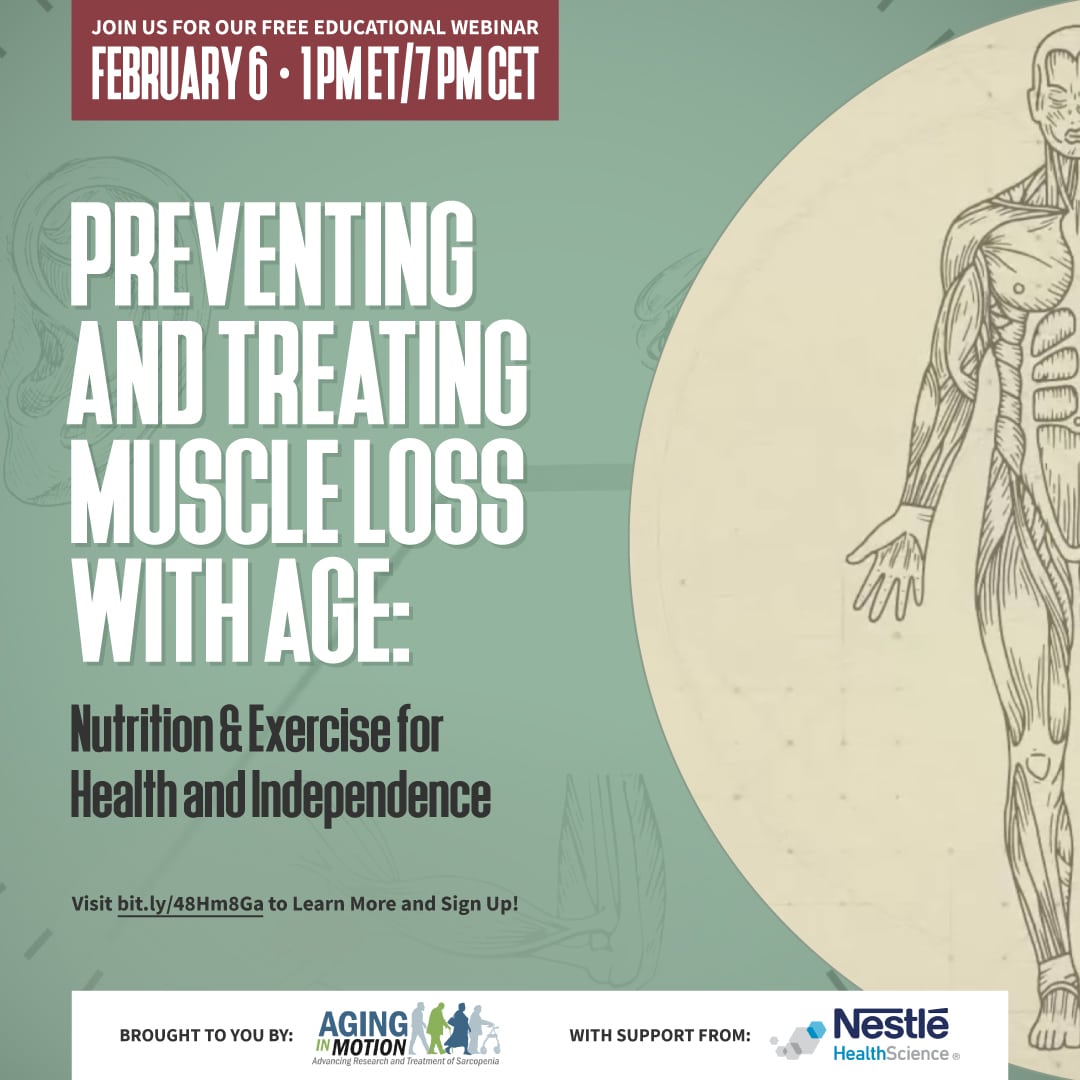On a recent episode This is Growing Old, Alliance for Aging Research President and CEO Sue Peschin talked with Dr. Jack Guralnik, professor of epidemiology and public health at the University of Maryland School of Medicine. Here are some highlights from their conversation.
Sue Peschin: The Alliance feels very fortunate to have you serve as chair of the Science Advisory Board for Aging in Motion, which works to educate and advocate for research in the areas of sarcopenia and age-related functional decline. What exactly is sarcopenia?
Jack Guralnik: Sarcopenia is age-related loss of muscle and the consequent loss of physical strength and ability to perform normal daily activities. It’s an interesting word. It comes from the Greek roots. sarx, which means flesh, and penia, which means loss of, or lack of. It is simply the loss of muscle in the body. It’s an area that is somewhat new in the aging world, although it’s been a universal component of aging. We start losing muscle when we’re in our 30s, where we reach our peak and then it goes down slowly. But in some people, especially when they hit their late 70s, 80s, and into their 90s, this loss of muscle accelerates, and we’re learning now about the reasons for that acceleration. But as that happens, it can cause really profound problems with loss of strength. So people have trouble climbing stairs, getting out of the chair, doing anything down to opening jars that requires strength.
Sue Peschin: The Alliance for Aging Research recently released a new video to raise awareness about sarcopenia that you helped us review. Why do you think awareness of sarcopenia is low? And what steps can we take to help raise awareness?
Jack Guralnik: That’s a good question that those of us in the field often ask ourselves in terms of awareness being low. And I kind of think back to 30, 40 years ago when people were first starting to really become aware of Alzheimer’s disease and dementia. For a long time, dementia was thought of as just a normal part of aging. If you got old enough, you lost your mental capacity. And then it took some work to educate people to the fact that no, it’s a normal part of aging, that it’s a disease or a condition that we need to address and that that people need to be aware of and we need to do research on. In sarcopenia, we’re really in the early stages of that. People have assumed that getting weaker and losing physical abilities are kind of a normal part of aging, but they’re not. And we see examples of people who do well into their 80s and 90s and stay highly functional. So understanding what goes wrong when there’s an accelerated loss of muscle.
We’re not going to stop all muscle loss. There are a number of physiologic parameters that do affect muscle loss over time. And we see everyone losing some strength over time, but what we need to do is address this accelerated loss of muscle. Part of increasing awareness is to educate clinicians. Most physicians are not really aware of the work that’s going on in sarcopenia. And again, that’s something that the Aging in Motion coalition has really been addressing. And then the general public needs to address sarcopenia. I’ve given lectures to groups of older people living in independent living and in the community. And when they hear about this, it really makes a lot of sense to them.
I was told that at one facility that after hearing about this in my lecture, that the attendance at exercise class just shot up, that people really realized that this loss of strength was something that was affecting them and that they could do something about. So I think when people become more aware of it, they’re going to become more engaged and asking their physicians about it, and also becoming more active physically to prevent some of the effects of sarcopenia.
Sue Peschin: In your opinion, what are the most pressing issues older adults face today that must be resolved?
Jack Guralnik: That’s a big question. And if you brought together a big group of older people, you’d hear a lot of different issues that people. And thinking about this kind of stepping back and the big picture, I think healthcare and integrated good healthcare is probably a really important issue to most older people. We have a terrific healthcare system in many ways in this country. You can get some of the best care anywhere in the world, but we have a system that just doesn’t run very well. And the thing where I see the biggest problems is how it’s not integrated. People don’t have a primary care provider who can oversee all of the details that people are concerned about. We end up getting sent to multiple specialists who often don’t talk to each other.
So the splintering of healthcare can make it very difficult. And as a consequence, we see people who are on just an amazing number of drugs, 15, 20 drugs, and the physicians who are prescribing them are specialists in different areas and not talking to each other. So it’s just one example of where healthcare really needs to improve.
Getting off of the health issue, the area of financial security I think is a really pressing issue facing a large proportion of our older people. When you look at how little Social Security pays, I just don’t myself understand how people who are only receiving Social Security can survive these days. It just doesn’t seem like enough money to really be able to make it.
I think another pressing issue is the whole area of social change that we’ve seen, not just during this past year where it’s been incredibly powerful and difficult, but really over the past couple decades. Families often are not living in the same geographic area. You have people who just don’t get to see their children and grandchildren very much. Loneliness is an issue that many, many older people are dealing with and it’s a very pressing issue for them. And so psychological factors, anxiety and depression are areas that really impact people’s lives in a big way.
Listen to the full episode here.






